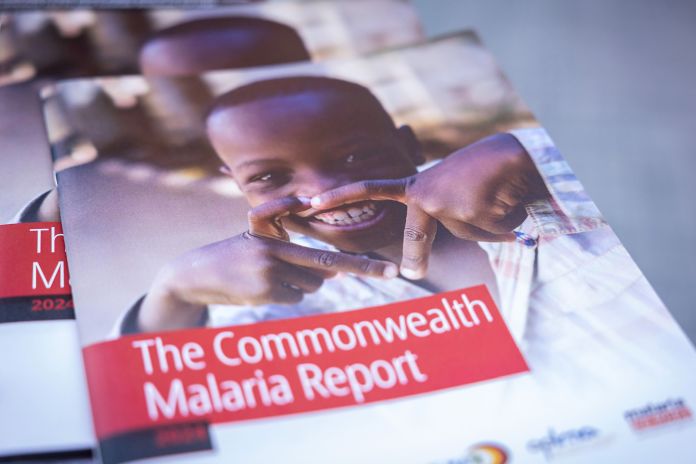LONDON, England – At an event held on 25 May 2024 on the sidelines of the 36th Commonwealth Health Ministers Meeting (36CHMM) in Geneva, Switzerland, ministers met with senior officials, global partners and campaigners to reflect on the progress made in eliminating the disease.
The ‘Zero Malaria – How to Change the Story for the Children of the Commonwealth’ event was hosted by the Commonwealth Secretariat and non-profit Malaria No More UK.
A growing threat to global health targets
According to recent figures from the World Health Organization (WHO), malaria killed 608,000 people, mostly children, in 2022. The Commonwealth bears the brunt of the disease: with only a third of the world’s population, it accounts for over half of all global malaria cases and deaths recorded each year.
The Commonwealth Secretary-General, Patricia Scotland KC, addressed the concerning findings in her opening remarks by referencing WHO figures (World Malaria Report), which show that a child under five dies of malaria nearly every minute:
“We must come together to tackle the social determinants of malaria, such as poverty, inadequate housing, and lack of access to health care. We also need to recognise the profound impact climate change is having on our malaria burden, creating conducive environments for its transmission and hindering control efforts.
By addressing these underlying inequities, we can create the conditions for sustainable malaria control, ensuring that no one is left behind. Together, we can rewrite the narrative of malaria – one that holds promise, hope, and a brighter future for the next generations.”
Echoing the Secretary-General’s sentiments, chair of 36CHMM, Kiribati’s minister of health and medical services, Dr Tinte Itinteang, said: “We must remember the children of the Commonwealth who look to us for action. Our efforts today will shape their tomorrow.”
Getting back on track
Event participants discussed the recently launched 2024 Commonwealth Malaria Report, which finds that, despite progress, malaria incidence and mortality rates are not on track to meet the global target of a 90 percent reduction by 2030.
Countries shared their experiences tackling the ongoing global malaria challenges with a Kenyan participant noting that climate change-related factors, such as rising temperatures and altered rainfall patterns, were expanding mosquito habitats, leading to increased malaria transmission in previously unaffected regions. The meeting heard that significant investment would be required to reverse this trend.
A Cameroon representative also described how a multisectoral approach, working alongside GAVI, the Global Fund and WHO, was effective in implementing their national vaccination programme.
The executive director of advocacy and strategy at Malaria No More UK, Gareth Jenkins, praised the Commonwealth’s commitment to eradication, said: “Leaders at this year’s Commonwealth health ministers meeting have both celebrated the progress we’ve made in reducing the burden of malaria as well as recognised the challenges ahead to get back on track by 2030.
“October’s Commonwealth heads of government meeting (CHOGM) is a crucial moment to focus minds, especially ahead of the crucial Global Fund and Gavi replenishments.”
The event will inform the concerns and strategies to be raised with leaders at the upcoming Commonwealth Heads of Government Meeting (CHOGM) in Samoa this October.





